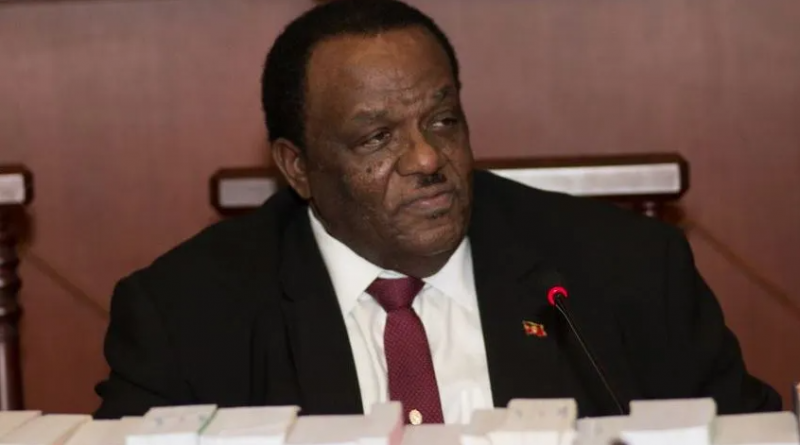Benjamin rubbishes fear of legal jeopardy regarding charges laid by police, then withdraws amendment he brought to the House
In a curious turn of events, Attorney-General Steadroy “Cutie” Benjamin today attempted to convince the public that the Government is not in legal jeopardy, following last week’s High Court ruling that called certain police procedures into question – and then turned around and withdrew an amendment he should have piloted through the Lower House.
In a matter involving a police officer, attorney Wendel Robinson challenged the right of the police commissioner to bring charges under amendments to the Criminal Prosecutions Services Act, 2017.
Under the Act, the prosecution of all criminal matters falls under the stewardship of the Director of Public Prosecutions (DPP), who must give permission for the Police to lay charges against a person.
This apparently was not done in the matter involving Robinson’s client, and the judge ruled in favour of the defence attorney last week.
However, in Parliament on Monday, April 17, Benjamin claimed that the DPP had, in fact, written a letter to the Police’s prosecution department, giving permission for a number of officers to prosecute in the Magistrates’ Court.
But while accusing several people of engaging in misinformation on the matter, Benjamin never referred to any document giving the Police permission to charge persons.
He also rubbishes claims that the law had been changed to suit politicians, calling them nonsense, since, he said, the separation of powers doctrine is in operation.
Pundits have said the legislation had its roots in the infamous case in which Benjamin was alleged to have fraudulently certified a passport photograph.
However, the attorney general says this law had its genesis in 2006 and was the brainchild of former Attorney-General Justin Simon, KC; however, he, Benjamin, took the credit for bringing the legislation into being years later, in 2017.
Speaking to REAL News after Benjamin’s criticism, Simon says his version of the Bill never contained any provision for the DPP to authorize police charges in writing.
Further, Simon explains, he delayed in advancing the legislation because he recognized there was no suitable space, at the time, in which to house the entire staff of the Crown Prosecution Unit that he envisaged.
Ironically, he notes that, even now, six years after the Act was passed by the current Administration, the Unit still has not been established.
Meanwhile, Benjamin says the Act offers several benefits as it relates to criminal prosecution, and he claims that no politician can interfere with the justice system.
According to Benjamin, there is nothing for the public to worry about, since Robinson’s victory in the High Court will be appealed – all the way to the Privy Council, if need be.
On Saturday, during Observer Radio’s Snake Pit programme, Robinson, along with Opposition MPs Sherfield Bowen and Algernon Watts, held a discussion on the implications of the High Court’s ruling.
They noted that it could have far-reaching effects – in that challenges could be filed by persons who had been charged by the Police after the change was effected in November 2021, as well as those remanded and convicted on such unlawful charges.
If these charges were to be ruled null and void, the attorneys agreed, it could prove very costly for the Government. The victims of the alleged offenders could be affected, as well, Watts pointed out.
It was felt that the amendment scheduled to be moved by the AG on Monday was an attempt to correct the authorities’ breach of the 2017 law.
However, ironically, after the House Speaker allowed Benjamin to use “Statements by Ministers” to defend the shortcoming, the Attorney-General then withdrew the proposed amendment – thereby preventing the Opposition Bench from responding.
Attempts by Opposition Leader Jamale Pringle to point out that the Bill was down for debate – and therefore should not be the subject of a Statement – were brushed aside by Speaker Sir Gerald Watt, who said he had given permission.
Such an occurrence in other places would be considered a breach of the Standing Order that prevents “anticipation” of a Bill, Parliament-watchers say.
Meanwhile, former House Speaker D.Gisele Isaac says she was surprised that the Attorney-General was allowed to comment on the allegations against Robinson’s client when he, himself, has signaled the Government’s intent to appeal the High Court ruling.
She believes that his utterances could easily prejudice the pool of jurors ahead of any possible trial – and cites her own experience in the High Court to support this.
In 2020, Isaac had two matters dismissed on account of prejudicial statements made by the prime minister the year before.




